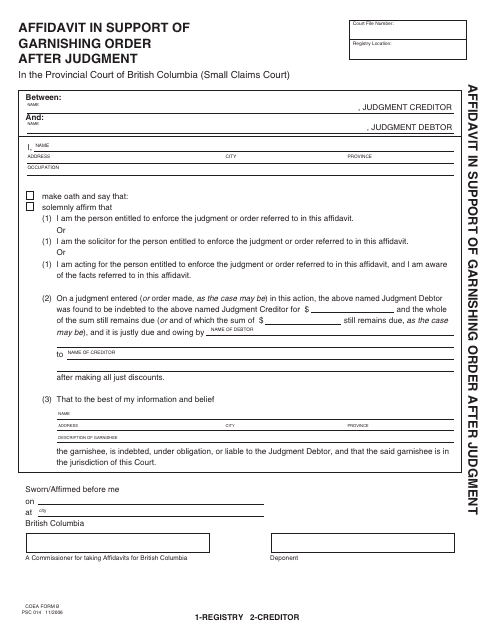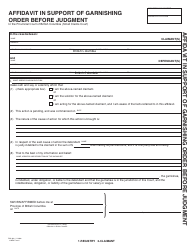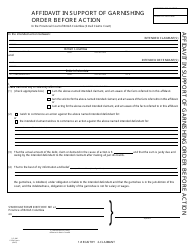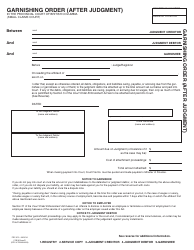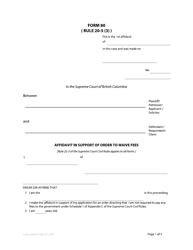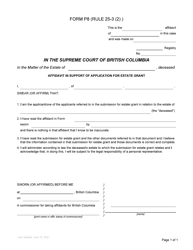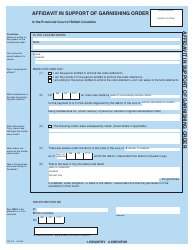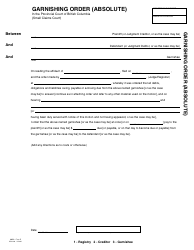COEA Form B (PSC014) Affidavit in Support of Garnishing Order After Judgment - British Columbia, Canada
COEA Form B (PSC014) Affidavit in Support of Garnishing Order After Judgment in British Columbia, Canada is a legal document used to support a garnishing order after a judgment is made. It helps to enforce the collection of a debt by deducting money directly from the debtor's wages or income.
In British Columbia, Canada, the COEA Form B (PSC014) Affidavit in Support of Garnishing Order After Judgment is usually filed by the judgment creditor or their legal representative.
FAQ
Q: What is COEA Form B (PSC014)?
A: COEA Form B (PSC014) is an affidavit used in British Columbia, Canada in support of a Garnishing Order After Judgment.
Q: What is an affidavit?
A: An affidavit is a written statement of facts made under oath or affirmation.
Q: What is a Garnishing Order After Judgment?
A: A Garnishing Order After Judgment is a legal order that allows a creditor to collect money from a debtor by garnishing their wages or bank account.
Q: What is the purpose of COEA Form B (PSC014)?
A: The purpose of COEA Form B (PSC014) is to provide the court with the necessary information to issue a Garnishing Order After Judgment.
Q: Who uses COEA Form B (PSC014)?
A: COEA Form B (PSC014) is used by creditors who have obtained a judgment against a debtor and want to collect the money owed.
Q: Is COEA Form B (PSC014) specific to a particular type of debt?
A: No, COEA Form B (PSC014) can be used for any type of debt.
Q: What information is required in COEA Form B (PSC014)?
A: COEA Form B (PSC014) requires information about the judgment, the debtor, the garnishee (e.g., employer or bank), and details of the debt.
